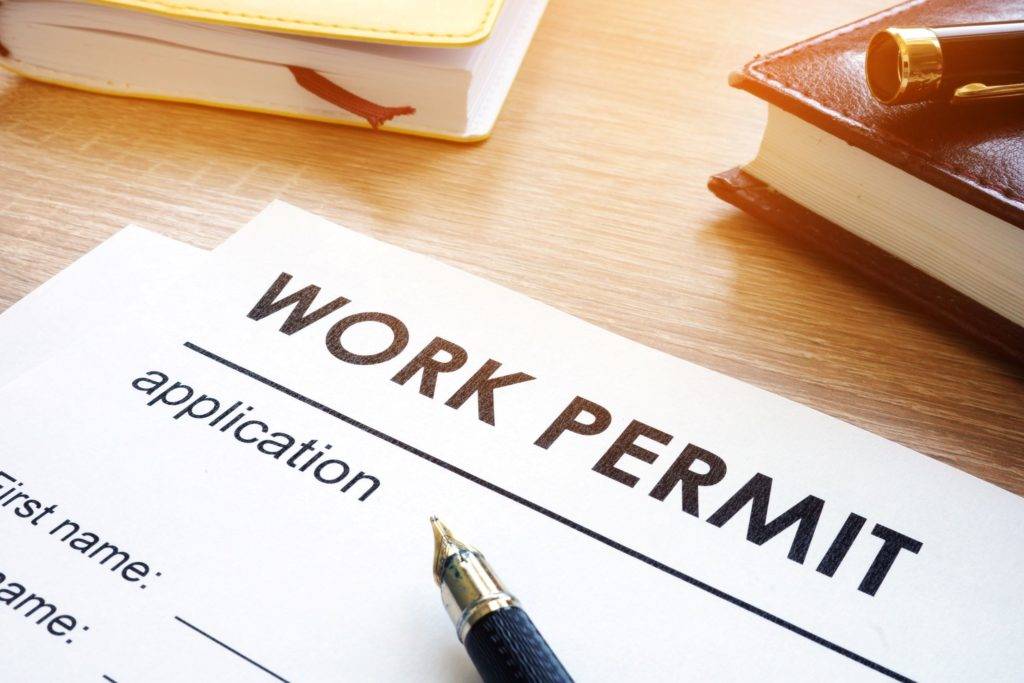Getting denied a visa can be frustrating, but it doesn’t have to be the end of your journey. I’ve discovered that with the right steps, you can turn that disappointment into an opportunity to reapply stronger and more prepared.
In this guide, I’ll share what you need to know about reapplying after a visa denial. From understanding why applications get rejected to taking actionable steps that improve your chances, you’ll have a clear path to move forward confidently. Let’s get started on turning this setback into your next big win.
Read: How to avoid a Canada study permit refusal
Common Reasons for Visa Denial
Visa denials happen for various reasons, but identifying the issue can guide you toward a successful reapplication. Here’s a breakdown of the most common reasons U.S. visas are denied:

- Incomplete Documentation: Missing or incorrect paperwork is a major reason for denial. For example, failing to provide proof of income, employment letters, or property ownership can result in your application being rejected. Before applying, ensure all documents are completed accurately and match the details provided in your forms.
- Insufficient Funds: You need to demonstrate that you can financially support yourself during your visit to the U.S. This includes providing bank statements, proof of assets, or sponsorship letters from family members who will support you financially. Without this, the visa officer may doubt your ability to fund your stay.
- Immigration Intent Concerns: If you’re applying for a temporary visa (like a tourist or student visa), the officer must believe you’ll return to your home country after your visit. Evidence like a steady job, property ownership, or strong family ties can demonstrate this. Lack of such proof often leads to rejection.
- Criminal Records: Any past legal offences, even minor ones, can raise concerns about your eligibility. Be honest about your record, and where applicable, provide court documents or evidence of rehabilitation to address this issue.
- Previous Overstays: If you’ve overstayed a visa in the past, it may impact your credibility. A strong explanation and proof that you’ve complied with immigration laws since then can help when reapplying.
Understanding these common reasons for denial can help you fix issues in your application and improve your chances next time.
Steps to Take After a Visa Denial
A denial isn’t permanent—it’s a chance to strengthen your case. Here’s what you should do:
Understand the Denial Reason
When your visa is denied, the consular officer typically provides a letter explaining why. This could be based on Form 214(b) (nonimmigrant intent) or other specific grounds. If the explanation isn’t clear, you can request further clarification by emailing or contacting the U.S. embassy or consulate where you applied. Knowing the exact reason will help you address the problem directly.
Gather Additional Documentation
Once you know the reason for denial, focus on gathering the necessary documents to strengthen your application:
- Proof of Financial Stability: Updated bank statements, salary slips, or proof of assets.
- Ties to Home Country: Employment contracts, family obligations, or ownership of property.
- Corrected Errors: Review and update forms to ensure all details match your documents.
Seek Professional Help
Visa processes can be tricky, especially after a denial. Consulting an experienced immigration attorney or visa consultant can be invaluable. Professionals can review your case, help you prepare stronger evidence, and guide you through the reapplication process. Trusted organizations like the American Immigration Lawyers Association (AILA) can help you find reliable experts.
What You Need to Know About Reapplying
Reapplying after a visa denial is possible, but success depends on how well you address the previous issues.

- No Waiting Period: In most cases, you don’t need to wait to reapply unless the denial specifically states otherwise. However, rushing to reapply without addressing the issues could lead to another rejection.
- Correcting Mistakes: Review your previous application and fix any errors or missing documents. For example, if you didn’t submit proof of income, include detailed bank statements or pay slips this time.
- Updating Information: Ensure all forms reflect your current situation, including employment, marital status, or travel history.
- Interview Preparation: Be confident and clear about your purpose for travelling, and rehearse your answers to common questions like, “Why do you want to visit the U.S.?” or “What ties you to your home country?”
Reapplying isn’t just about submitting a new application—it’s about presenting a stronger case.
Read: Food Production Worker in the USA: The ins and outs
Tips for a Successful Reapplication
Success in reapplying requires careful planning and a well-prepared application.
Provide Strong Documentation:
- Submit evidence of financial stability, like bank account statements, asset documents, or sponsorship letters.
- Show strong ties to your home country, such as proof of employment, family responsibilities, or property ownership.
Be Honest and Transparent:
- Declare all previous visa applications, even if they were denied. Dishonesty can result in a permanent ban.
Practice Interview Confidence:
- Nervousness during your interview can raise doubts. Rehearse your answers to potential questions and stay calm and respectful during the interview process.
Stay Updated:
- Regularly check the U.S. Department of State website for updates on visa requirements and policies.
Being thorough and transparent goes a long way in ensuring a successful reapplication.
Red Flags to Avoid When Reapplying
Reapplying after a visa denial can feel daunting, but avoiding these mistakes can significantly improve your chances of success.
Submitting Inconsistent Information
- Carefully review your application, supporting documents, and interview responses to ensure everything aligns.
- Inconsistencies, even minor ones, can raise doubts about your credibility and result in another rejection.
Ignoring Feedback from the Denial
- After a visa denial, you’ll often receive a written explanation or verbal feedback. Use this to identify the specific areas where your application fell short.
- Failing to address these issues signals to visa officers that you haven’t taken the necessary steps to improve your application.
Using Fraudulent Documents
- Never submit fake or altered documents. This includes financial statements, employment letters, or personal identification.
- Fraudulent submissions can lead to severe penalties, such as being permanently banned from entering the U.S.
Neglecting to Update Your Application
- Resubmitting the same application without addressing the prior issues is a missed opportunity.
- Update your documents and responses to reflect any changes in your circumstances or to strengthen weak areas.
Rushing the Reapplication Process
- Take time to thoroughly prepare before reapplying. Hasty applications often result in repeated mistakes and denials.
By avoiding these red flags, you demonstrate seriousness and commitment, making your application more likely to succeed.
Read: The Hidden Visa Path That’s Helping Thousands of Immigrants Work in the USA
Key Insights from Visa Officers
Visa officers play a critical role in the approval process, and understanding their expectations can make a big difference. Here’s what they often look for:

Be Genuine
- Ensure your travel plans align with the purpose of the visa you’re seeking. For example, if applying for a tourist visa, clearly explain your itinerary and intentions.
- Avoid vague or overly ambitious plans that don’t match the scope of your visa category.
Prove Strong Ties to Your Home Country
- Visa officers want assurance that you intend to return home after your trip. Highlight factors such as:
-
- A stable job or ongoing education.
- Family commitments or dependents relying on you.
- Ownership of property or significant financial investments.
-
Show Financial Preparedness
- Demonstrate that you have the financial means to support your trip without relying on illegal work or assistance in the U.S.
- Provide accurate and verifiable financial documents, such as bank statements or sponsorship letters, to prove your ability to cover expenses.
Display Confidence and Honesty
- During the visa interview, answer questions clearly and confidently. Avoid memorized or overly rehearsed responses, as these may come off as insincere.
- Be honest if you don’t know an answer or if your circumstances have changed since your previous application.
Be Thoroughly Prepared
- Review your application thoroughly and rehearse potential interview questions. Preparation shows respect for the process and gives you an edge over less-prepared applicants.
By addressing these key points, you build a compelling case for your approval and demonstrate to the visa officer that you’re a serious and credible applicant.
Resources for U.S. Visa Reapplication
Having the right resources can simplify the process. Here are some helpful links:
- U.S. Department of State Visa Refusals: Learn about common refusal reasons and how to address them. Visit travel.state.gov.
- Form DS-160 Guide: Follow official guidance on completing your application correctly.
- American Immigration Lawyers Association (AILA): Find reliable immigration attorneys at www.aila.org.
Use these resources to strengthen your case and approach your reapplication confidently. Visa denial isn’t the end of your journey. By understanding the reasons for rejection, taking corrective action, and preparing a stronger case, you can improve your chances of approval. The key is persistence, preparation, and seeking the right guidance. With these steps, your reapplication can be a stepping stone to achieving your travel goals.















I want to work visa
I want to need work permit and Visa
your team ask waiting for immigration
I have 5 year experience driver in saudia Arabia and
2 year experience logistic field
I’m Interested with your program and I need your help.
WhatsApp me: +244 923 902 432
my name is Muhammad AFSEER. I’m from Pakistan. i work in Saudi Arabia this time.
I wanna work abroad, currently unemployed from South Africa..
I’m 35 years old, currently unemployed from South Africa.. I wanna work abroad..